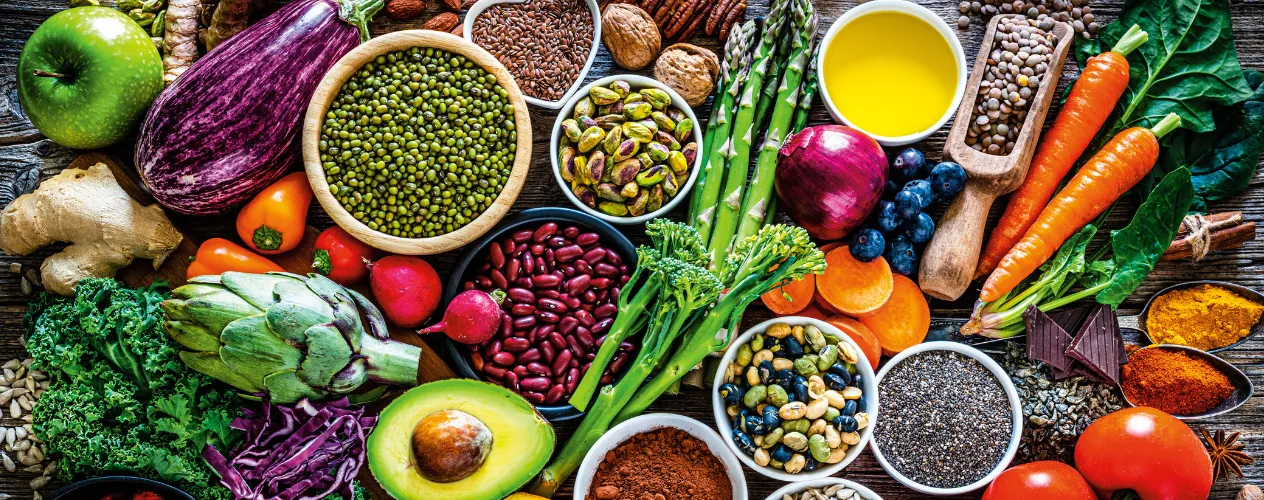Gut Reaction
FSPH’s Dr. Bill McCarthy is among a growing group of public health researchers who have turned to emerging gut-microbiome evidence for clues in fighting obesity and improving health.

FOR DECADES, DR. BILL MCCARTHY HAS CONDUCTED RESEARCH ON LIFESTYLE BEHAVIORS, such as how smoking and eating junk food affect health. This work was frustrating, however, because the health consequences of his research are typically not seen for years.
But in 2014, he encountered a study that documented marked changes in the community of microbes in a person’s gut within days after switching from a vegetarian diet to an animal-based diet, with profound implications for health. As McCarthy learned more, his research focus began to pivot.
“I was amazed that a change in everyday food consumption could radically change one’s health prospects in just four days!” marvels McCarthy, a UCLA Fielding School professor of health policy and management. “Because the half-life of gut microbes is only 20 minutes, big changes to what you eat can change their composition much faster than the time it takes to see improvements in fitness from exercise, or in weight from dieting. For a behavior change to cause significant changes in chronic disease risk in just days really excited me.”
The 500-plus bacterial species comprising our gut microbiome have 100 times more genes for extracting nutrients from fiber-rich foods than humans do. The bacteria convert these nutrients into metabolites valuable for their human host, such as short-chain fatty acids, which provide 10% of the host’s daily calories and help regulate glucose, appetite, and inflammation.
“Most of our gut microbes can’t live without us, we thrive when they do well, and our immune system is heavily influenced by our gut microbiota,” McCarthy says. “They are helpful in many ways in protecting the host from all sorts of threats, including metabolic threats like heart disease, diabetes, and some cancers.”
Along with McCarthy, UCLA Fielding School faculty Drs. Catherine Carpenter, Dena Herman, Jonathan Jacobs, and Karin Michels have studied the microbiome as it relates to nutrition and health.
“Microbe-friendly foods closely resemble those featured in the classic Mediterranean diet and other high-fiber diets,” says Jacobs, an assistant professor of epidemiology at FSPH and of medicine in the David Geffen School of Medicine at UCLA. “By contrast, the evidence is persuasive that adherence to the Western dietary pattern of highly processed animal-based foods is associated with microbial dysbiosis and elevated low-grade inflammation.”
...our immune system is heavily influenced by our gut microbiota.
Feeding your microbes well, McCarthy says, means consuming six servings per day (approximately 20% of daily calories) of fiber-rich, minimally processed plant-based foods drawn from the U.S. Department of Agriculture’s MyPlate food groups; most Americans are starving their microbial allies by eating two servings or less. To ensure adequate nutrition for one’s microbes, McCarthy recommends fresh, minimally processed vegetables and fruits (apple slices, rather than applesauce, for example); protein-rich legumes, nuts and seeds; and whole grains, like brown rice and bulgur wheat.
“The more we can get our microbes to generate short-chain fatty acids, the less hunger and appetite one has,” McCarthy says. “The weight control advice coming out of current research trials may well be, ‘Eat more microbe-friendly foods, weigh less.’”



